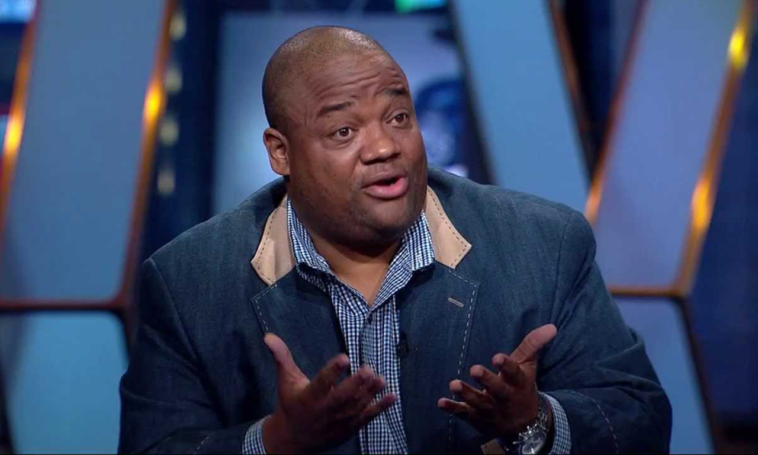Whitlock suggests women do not deserve the vote in an outrageous speech. Jason Whitlock, a figure claiming not to be a conservative despite aligning with many conservative views, seems to be engaged in a form of historical revisionism that portrays oppressive periods as positive.
One notable instance is his suggestion that women refrained from voting in the past because it symbolized family representation, following a so-called “natural order” intended by God, where men serve God and women follow men.
However, historical facts reveal that women were denied voting rights by men who deemed them unfit for the complexities of politics. They utilized the notion of God to validate their discriminatory beliefs.
This line of reasoning echoes the justifications employed for slavery and the broader mistreatment of Black individuals. Despite this, Whitlock appears to harbor a nostalgic sentiment, expressing a desire to return to times when such discriminatory norms were widely accepted.
An intriguing facet of this narrative is Whitlock’s admission of never having voted before, a detail that doesn’t align with his newfound allegiance to the MAGA (Make America Great Again) movement, driven largely by his admiration for former President Trump, who is currently facing criminal charges.
Whitlock, despite his lack of active involvement in serving his apparent beliefs, critiques the day women gained the right to vote, pointing to figures like Susan B. Anthony as inspirational for this societal shift.
The contrast is stark – Jason Whitlock, in the contemporary landscape of the 21st century, suggests that women should never have gained the right to vote. This stance reveals a regressive and backward perspective held by some conservatives, yearning for a return to a time when patriarchy and white supremacy were ingrained as unquestioned norms. The familiar slogan “make America great again” seems to encapsulate this desire among certain conservatives to revert to an era where such oppressive norms prevailed.
It’s important to note that both Republicans and Democrats widely regard the right to vote as a fundamental pillar of American freedom and democracy. However, conservative efforts often run counter to this principle, showcasing a tendency to restrict and limit who can actively participate in the democratic process. Whitlock’s narratives fit into this broader conservative trend that challenges the democratic ideal of universal suffrage.
This attempt to reshape historical narratives to fit a particular ideological agenda is not unique to Whitlock. It reflects a broader trend within conservative circles to reinterpret historical events and social progress through a lens that diminishes the significance of movements toward equality and justice. It’s a selective framing that seeks to undermine the strides made by marginalized groups in their quest for equal rights.
In dissecting Whitlock’s rhetoric, it becomes evident that his narrative is not merely about a personal preference for a bygone era. It’s part of a larger narrative within some conservative circles that questions the progressive values of inclusivity and equal representation.
By challenging the historical milestones that expanded rights to previously marginalized groups, this narrative attempts to slow down or reverse the societal progress achieved through decades of struggle and activism.
The discussions surrounding Whitlock’s viewpoints lead to broader questions about the evolving nature of conservatism and its relationship with social progress. While conservatism, at its core, often seeks to preserve traditional values, the interpretation and application of these values can vary widely.
The tension between preserving tradition and adapting to a changing society is a fundamental aspect of political ideologies, and it manifests uniquely in different individuals and factions within the conservative movement.





Join the Community and Be a Part of the Conversation
You must be logged in or registered to post a comment.